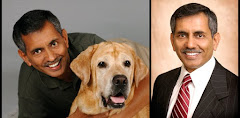Click on the two short video clips below (43 seconds and 7 seconds respectively) which are excerpts from NBC interviews with former 4-star Gen. Shinseki a few weeks before he resigned as head of the Veterans Administration. Facing a big-time crisis of confidence in his leadership, the general should have come across as highly determined and confident when replying to questions such as “Are you willing to accept full responsibility” and “Do you completely understand why there is…?” Instead, you see responses that are weak and uninspiring thanks to body language that borders on the pathetic.
In my opinion, the singular reason why Shinseki appears so lackluster and diffident in the clips is that during all of his leadership training in the Army, he never got to appreciate the extraordinary significance of nonverbal skills at key moments, especially when an executive’s image and projection of leadership are of paramount importance. Indeed, as an executive communication coach here in Houston
Sample Solution: So, what could Shinseki have done differently? In the interest of brevity, let’s examine the shorter clip in which, after being asked “Do you completely understand why there is that level of outrage right now,” the general’s feeble and somewhat equivocal response is: “Oh, I think I do--I'm a veteran myself.” Out of the dozens of different combinations of word choice, vocal variety, facial expression, and other body language, here is just one specific example of how Shinseki could have responded much more inspiringly and projected gravitas:
1. choice of words: something like “I absolutely do—I too am a veteran” or “There is no question that I do—I too am a veteran”
2. body language:
(i) with reference to the words in Italics: uttering them slowly, giving weight to each syllable, followed by a split-second pregnant pause in the case of "no question";
(ii) saying the word “too” loudly;
(ii) saying the word “too” loudly;
(iii) a more serious or intense facial expression;
(iv) torso leaning forward;
(v) gesticulating with right index finger pointing down during the first half of the sentence;
(vi) pointing toward his chest and displaying a disarming smile while saying “I too am a veteran.”
© Copyright 2014 V. J. Singal

